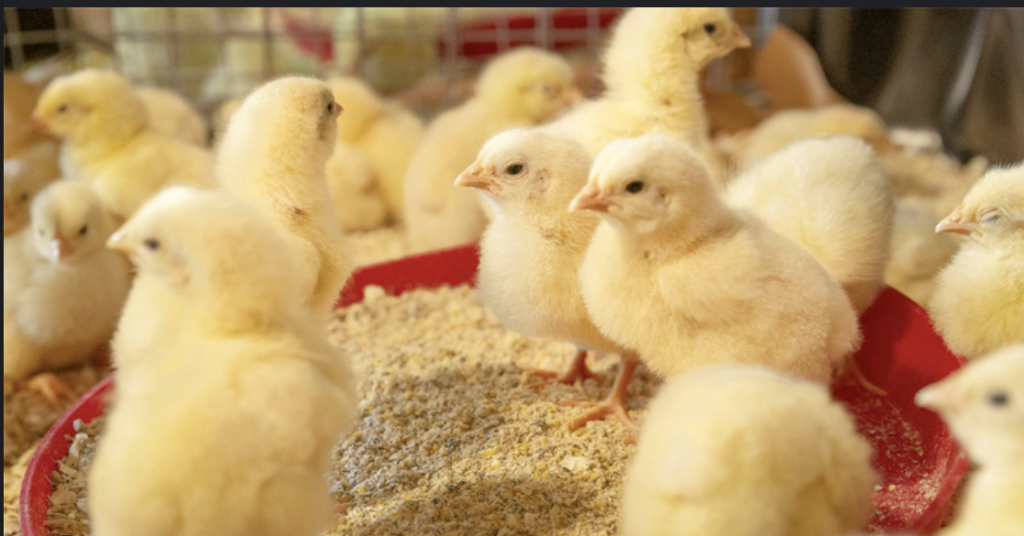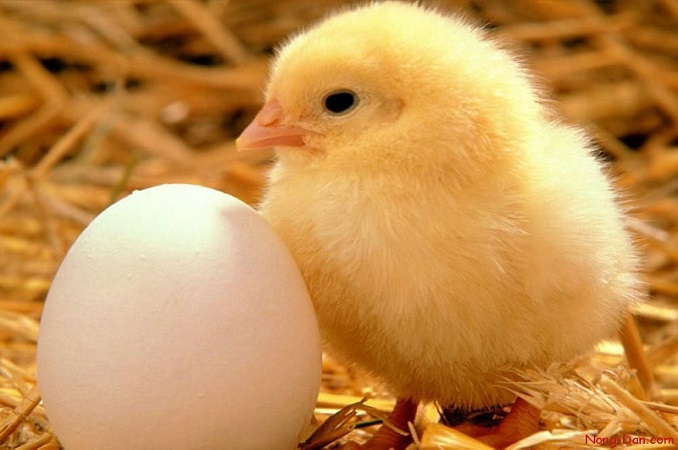Knowledge Of Caring For Chicks For First Time Chicken Raisers
Raising healthy chicks requires proper care, attention to detail, and understanding of their unique needs. From their environment to their diet and health management, every aspect of chick care plays a crucial role in ensuring they grow strong and resilient. In this guide, we will cover everything you need to know about raising chicks from day one, including tips for providing the best care, feeding, and disease prevention.
1. Creating the Right Environment for Chicks – Knowledge Of Caring For Chicks For First Time Chicken Raisers
A proper environment is key to ensuring your chicks thrive. Newborn chicks are fragile and sensitive to temperature, humidity, and cleanliness. Here’s how to set up the best living conditions:
1.1 Temperature Control

Chicks are highly sensitive to temperature, and it’s vital to maintain the right warmth during their early days. Right after hatching, chicks need a temperature between 95°F (35°C) and 100°F (38°C) for the first week. You can gradually reduce the temperature by 5°F (2-3°C) each week until they reach a comfortable range of 70°F (21°C) by the time they are around 6 weeks old.
Use a heat lamp or brooder with a thermostat to monitor and maintain a consistent temperature in their living space. A thermometer should be placed at chick level to ensure they are not too hot or too cold.
1.2 Humidity and Ventilation
Along with temperature, humidity plays a crucial role in chick health. Ideally, the humidity level in the brooder should be between 50% and 60%. Too high or too low humidity can cause respiratory issues and dehydration in chicks. Ensure proper ventilation by keeping the brooder well-ventilated without exposing the chicks to cold drafts.
1.3 Lighting Conditions
Chicks need proper lighting to establish their daily rhythms and help them find food and water. However, avoid overly bright lights as they can stress the chicks. Providing 16 hours of light per day during the first few weeks of life is ideal. After that, you can reduce the lighting to 12 hours per day.
2. Diet and Nutrition for Chicks – Knowledge Of Caring For Chicks For First Time Chicken Raisers
Proper nutrition is essential to ensure that chicks grow into healthy, productive chickens. Their dietary needs evolve as they age, but certain principles of chick feeding should be followed consistently.
2.1 Starter Feed
For the first few weeks, chicks need a specialized chick starter feed, which is high in protein (around 18-20%). This feed is designed to promote healthy growth and development. Make sure the feed is in crumble form, which is easier for chicks to consume and digest.
Starter feed should also be enriched with vitamins and minerals to support bone growth and overall health. Never feed chicks regular chicken feed or food meant for adult chickens as it may lack the necessary nutrients for growth.
2.2 Water
Access to clean, fresh water is essential at all times. Chicks may be hesitant to drink water initially, so it’s crucial to place water containers within easy reach of the chicks. You can also dip their beaks gently into the water to encourage them to drink.
Water should be checked frequently to ensure it’s clean and free from any contaminants. Make sure the water container is shallow enough to prevent drowning but deep enough to provide adequate hydration.
2.3 Supplements and Treats
As chicks grow, you can introduce other treats and supplements to their diet, but their main nutrition should still come from high-quality chick feed. You can offer small amounts of soft greens, cracked corn, or mealworms, but these should not replace their main diet.
Additionally, consider providing a source of calcium after 6 weeks of age, as growing chicks need extra calcium for healthy bone development. Crushed oyster shell or limestone can be provided in a separate container for chicks to peck at.
3. Health Management for Chicks – Knowledge Of Caring For Chicks For First Time Chicken Raisers
Keeping chicks healthy is vital for ensuring they grow into strong adult chickens. They are more vulnerable to diseases and health issues in their early days, so preventive care is crucial.
3.1 Vaccinations
Vaccination is one of the most important measures in preventing diseases in chicks. There are several vaccines that should be administered depending on your region and the diseases present. Common vaccinations for chicks include those for Marek’s disease, Newcastle disease, and Gumboro disease. Consult with a local veterinarian to determine the vaccines appropriate for your chicks.
3.2 Brooder Hygiene
Cleanliness is essential in maintaining the health of your chicks. Regularly clean the brooder, including removing soiled bedding, washing waterers and feeders, and disinfecting the entire area. Keeping the brooder clean helps prevent the growth of bacteria and parasites that can cause illness in chicks.
Use non-toxic disinfectants to clean the brooder, and ensure that bedding is dry and fresh. A clean, dry environment reduces the risk of diseases such as coccidiosis and respiratory infections.
3.3 Monitoring Health
Check on your chicks regularly to ensure they are eating, drinking, and behaving normally. If you notice chicks that are lethargic, have pasty vents, or are losing weight, it could be a sign of illness. Early intervention is critical, so if you suspect a health issue, consult a veterinarian promptly.
Common chick diseases include respiratory issues, diarrhea, and parasites like mites or lice. You can prevent many of these problems by maintaining a clean environment, offering good nutrition, and ensuring your chicks are vaccinated.
4. Socialization and Enrichment for Chicks – Knowledge Of Caring For Chicks For First Time Chicken Raisers
Chicks are social creatures, and keeping them mentally stimulated is important for their development. Socialization helps prevent boredom and encourages natural behaviors.
4.1 Providing Space to Roam
As chicks grow, they need space to move around. Ensure your brooder is large enough for them to stretch their wings, forage for food, and interact with each other. Overcrowding can lead to stress, aggression, and the spread of disease, so it’s important to adjust the size of the brooder as your chicks grow.
4.2 Enrichment Activities
Chicks enjoy pecking and exploring their environment. Providing some simple enrichment items, like small pieces of straw, hay, or plastic mirrors, can stimulate their curiosity and provide entertainment. Just be sure to avoid any small objects they could swallow or choke on.
You can also introduce a dust bath area, where chicks can practice scratching and digging—natural behaviors that help with their physical and mental health.
5. Transitioning Chicks to Outdoor Housing – Knowledge Of Caring For Chicks For First Time Chicken Raisers

After about 6-8 weeks, your chicks will be ready to transition to an outdoor coop or larger living space. The transition should be gradual to avoid stressing the chicks.
5.1 Acclimating to Outdoor Conditions
Start by introducing your chicks to the outdoors during the day, allowing them to explore their new environment while returning them to their brooder at night. Slowly increase the amount of time they spend outside as they get accustomed to their new home.
5.2 Coop Setup
When setting up a coop, ensure it’s secure, dry, and free from drafts. The coop should have enough space for all the chickens to move around comfortably. Provide nesting boxes, perches, and space for them to forage. Also, make sure the coop is predator-proof to protect your chicks as they grow.
6. Conclusion
Raising chicks requires time, patience, and a good understanding of their needs. By providing a warm and clean environment, offering the right nutrition, monitoring their health, and ensuring their social and physical needs are met, you can raise healthy, happy chickens that will provide eggs and meat for your household.
Remember, early care is the foundation of a strong, productive flock, so take the time to learn about your chicks’ needs and be proactive in providing them with the best care possible. With these tips, you’ll be well on your way to raising successful, healthy chicks!
Read more:

